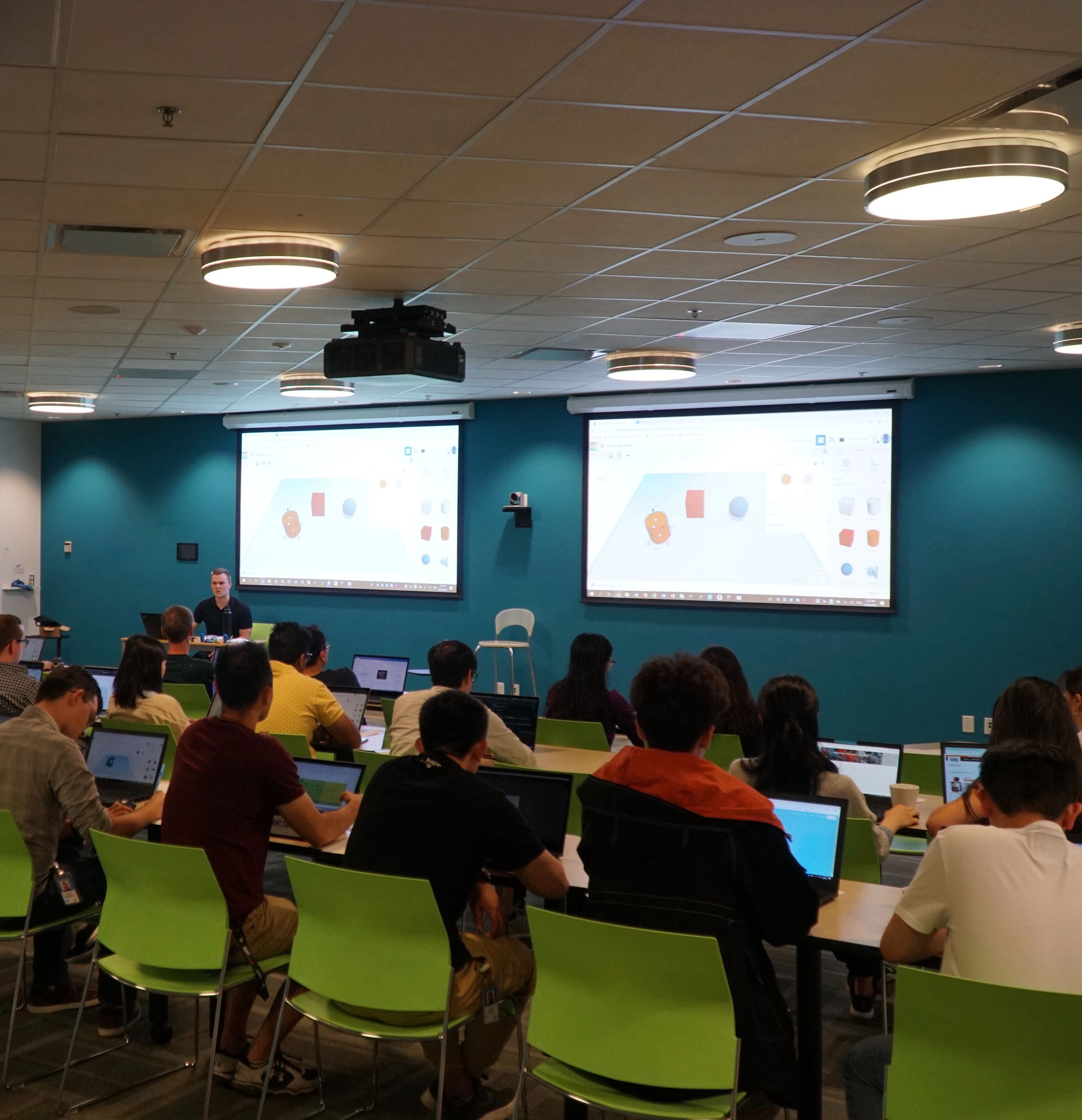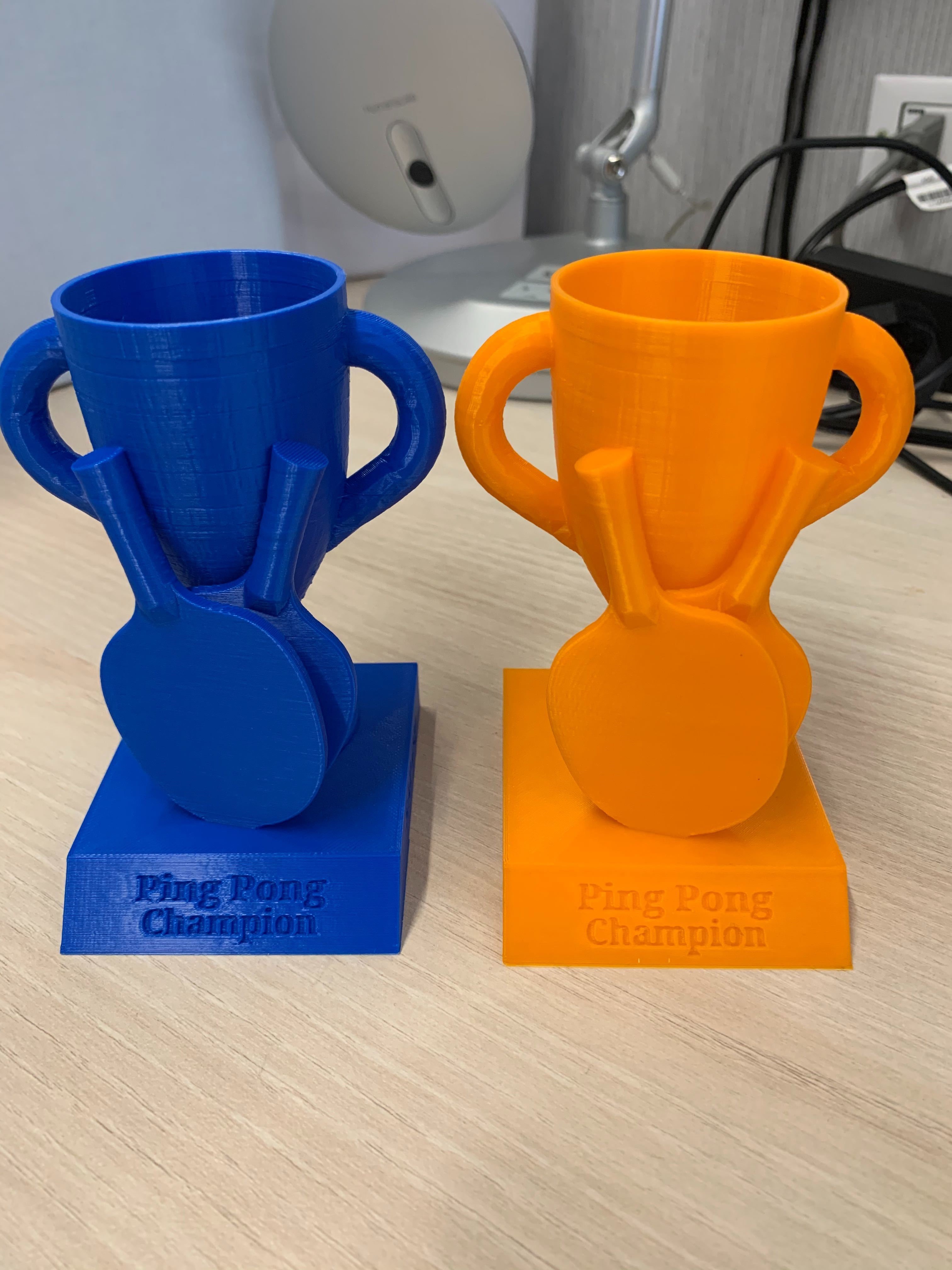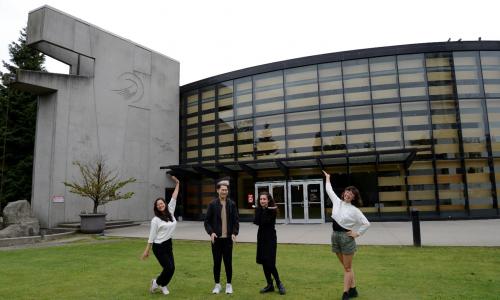
In my first job, I worked as a dishwasher. A couple of years ago, I completed my first 8 months of co-op as an Asset Management Officer at Environment and Climate Change Canada (ECCC). Now I have successfully completed a 12-month internship as a Project Coordinator for Translation at SAP.
Five co-op terms seem like a lot. That’s almost two full years of working, during what is supposed to be a “four-year degree”. A lot of people have asked me if taking time away from school to do co-op is really worth it. Why not just finish my courses, graduate, and get a full-time job? School gives you knowledge, which is important for any job, but academic settings are very different from professional workplaces. These days, having a degree doesn’t guarantee you a job after graduation.
Long story short, co-op gives you access to skills and tools that aren’t available in the classroom. In my co-op experiences, I’ve used expensive software that is only used in large companies, so it isn’t available to students. Co-op also gives you unique networking opportunities; I had the chance to meet face-to-face with national and global executives and get advice from them on how to maximize my time as an intern. I got to present my work to them, and they were able to see how I apply my skills to current business problems. These are tangible, transferrable skills I can put on my resume.
So, why go through the co-op program instead of getting an internship through your own channels? Because many large companies will only hire interns who are current students, and who are working towards a degree. In some cases, companies will only post these positions through the co-op department’s job site. The co-op coordinators do a great job of building relationships with top companies, which gives students the opportunity to apply for fantastic roles. If you want to do an internship at “that tech giant” or “that financial institution”, then you should join the co-op program. It is the best way – and in some cases the only way – to get an internship at an awesome company.
My first co-op term at ECCC was only supposed to be for four months, but halfway through they asked me to stay with them for an extra four months. I was on the fence because I wasn’t sure there was anything left for me to learn in my position, but I decided to stay anyways. As an Asset Management Officer, my focus for the first four months was on the renovation of our downtown office. My responsibility was to coordinate the sale and disposal of government assets at our downtown Vancouver office. When inventory reaches the end of its useful life, it needs to be either disposed or sold. This involved working with the person who currently owned the inventory to learn about its condition. I also worked with third-party vendors to dispose or sell the asset. Our team successfully donated refurbished computers to local schools, sold good quality furniture to the public, and properly recycled old office supplies in the most environmentally friendly way possible.
Once I was comfortable with this project and the processes involved, I was given the chance to expand my reach; in the second half of my internship, I managed government inventory at the national level. I got to work with colleagues across Canada, and I was trained to use additional digital tools to manage assets. If I did not accept the offer to extend my internship, I would never have learned to use these tools. If you’re in a co-op position and you’re interested in staying an extra few months, I strongly encourage you to talk to your supervisor. Most organizations are willing to extend their co-op students’ terms because they don’t have to go through the hiring and training process with a new student. It also shows that they trust you and your work. However, some employers don’t know that this is an option. Every student’s school program has different rules; some programs require a student to return to school after 4 or 8 months of work, whereas some school programs encourage students to stay in their co-op role as long as possible. If you are enjoying your co-op job and your program allows you to stay longer, you should absolutely propose an extension to your supervisor in the final 2-4 months of your role.

In any co-op role, try to learn as much about the company’s software as possible. It will give you an advantage when you apply for other internships or full-time jobs. In the second half of my work term at ECCC, I learned to use SAP’s inventory management software as well as a few other client support tools. Had I gone back to school instead of extending into a second work term at ECCC, I may not have been as successful in my application to an internship at SAP. The training I received at ECCC on using SAP software gave me a significant advantage when applying my second internship; most students never have exposure to these types of software since they are typically used as high-performance solutions in large enterprises. Any time you have the opportunity to learn about a proprietary system, I strongly encourage you to learn as much as possible.
In my role as a Project Coordinator for Translation at SAP, my team and I worked with clients and vendors around the world to manage translation projects for legal documents, user interfaces, marketing materials, and more. I have been involved in the planning and execution of large-scale, global translation initiatives. I ensured costs were accurate, deadlines were met, and that our clients were satisfied by the quality of the translated content. I’ve had the pleasure of presenting to panels of lawyers from around the world and contributed to process changes. These experiences in project management and communication will set me apart from other candidates when I apply for jobs after graduation.
A co-op role isn’t only about the work; it’s also important to build your network and engage with people outside your own team. During my time at SAP, I was a co-chair of the intern committee (IC). I usually describe the IC as the equivalent of a student council or support network, but within a large company instead of a school. In my first 4 months at SAP I participated in almost all of the events held by the previous IC. I was inspired by their passion for helping new interns and for making SAP a fun place to work. When the applications opened for the next IC, I applied to be a co-chair because I wanted the next cohort of interns to feel welcome and comfortable as I did. Being on the IC was a lot of fun. It allowed me to learn more about the internal processes at SAP and allowed me to network with a lot of fantastic people. My team and I brought events and engagement activities to our cohort of over 170 interns. I also worked closely with our executive leadership team to promote interaction between our interns and our full-time employees. We hosted several successful site-wide events including a Halloween costume contest, a Smash Bros Ultimate tournament, and an employee milestone celebration. In a building of over 1400 employees, it is thrilling to have the executive team support you directly.
The advantage of participating in extra-curricular teams within an organization, as opposed to a school club, is that you often work directly with hiring managers and c-suite executives. These are the people who will likely interview you, should you apply for a full-time job within their company. Your time within these teams is the perfect opportunity to show your skills and build your network.

In co-op positions, you are often given the opportunity to expand your skillset beyond what is required for your job. I decided to learn about 3D printers, 3D modelling, and hardware hacking. I have always been passionate about building and creating things but lacked the technological skills to use a 3D printer or 3D design software. I am a business student, so I do not have an engineering or computer science background. Working at a software company alongside teams of developers, I definitely felt out of place. I tried to learn as much about technology in my free time as I could. When I heard about the d-shop team at SAP, I decided it was the place to be, so I joined within the first month of my internship.
I like to describe d-shop as SAP’s internal makerspace, where employees have access to drones, 3D printers, microcomputers, and more. D-shop offers workshops on how to use various software and hardware, and a bunch of other technology-related seminars. I contacted the d-shop team about 3D printing workshops, but nobody at the time was able to give a workshop. Instead they allowed me to learn about 3D printing on my own, and practice with their machines. After a few weeks of watching YouTube videos and reading instruction manuals, I was independently using d-shop’s 3D printers. Shortly thereafter, they asked me to host a workshop on 3D printing, because the interest for a workshop was quickly growing among employees. Two months into my internship, and with one month of 3D printing experience, I nervously hosted my first 3D printing workshop.
During my internship, I was the primary 3D printing workshop facilitator for d-shop. I have had the pleasure of hosting 3D printing workshops for employees and student groups. I have also given tours to visiting companies and executives from around the world, showing off our cool gadgets and sharing our experiences in community involvement. I 3D printed trophies for our Intern Committee’s Halloween costume contest and for our ping pong tournament (shout out to the interns who beat the full-timers in their final match!).

Going into my internship at SAP, I had no 3D printing or design experience, and I didn’t even own a 3D printer. I now own 2 3D printers, one of which I built from scratch and programmed myself. I’ve also expanded my 3D design skills, creating my own phone cases, drone parts, and decorations.
My internships have given me some of the greatest experiences and opportunities as a student. The co-op program is an optional addition to your education; these days there is a lot of competition in the job market, and everyone has a degree of some kind, but not everyone has the work experience that comes from a co-op job. I’ve used each of my experiences as a springboard to the next. Co-op roles and internships are low-risk ways of testing your skills in real-world environments. My experiences from both of my co-op positions, and my roles in engagement groups, will be defining points in my future success. I consider co-op as an opportunity to expand my skills and network, and I always recommend it to other students.














